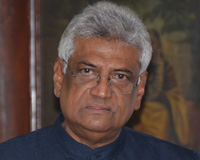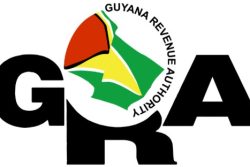Former Chairman Dr. Steve Surujbally has called for the process used to constitute the Guyana Elections Commission (Gecom) to be revamped, while saying that drawing nominees from political parties is a recipe for partisanship and polarization.
Speaking to reporters at his final press conference on Tuesday, Surujbally said the way commissioners are selected has to be changed or it would continue to prevent the “coming together” of the people.
The law provides for the Chairperson of Gecom to be selected by the President from nominees submitted by the Leader of the Opposition, while three members of the Commission are to be appointed by the President, acting in his own deliberate judgement, and three others by the President acting on the advice of the Leader of the Opposition after meaningful consultation with the non-governmental opposition parties represented in the National Assembly.

In media kits he distributed on Tuesday, he emphasised that the “continuous conflict and challenges in managing the commission” created by the situation necessitates “a comprehensive review of the way commissioners are selected and placed on the Guyana Elections Commission.”
Surujbally also addressed the controversy over fake Statement of Polls (SoPs) that were discovered during the last general elections in 2015. According to him, “Everyone knew that those SOPs could not have passed through the rigorous scrutiny of the commissioners and staff of Gecom.” He added that the fake SOPs could never have been included in the final total.
When asked, he could not say where they came from but noted that “there is empirical observation [that] there are certain matters that arose that will tend to lead us in a certain direction.” He said he would not comment on the issue publicly but when pressed, he added, “the direction would be that the culprit, with further research, may be identified.”
The media asked if it could be a commissioner and he refused to answer, saying, “I am a commissioner myself … So no, I will not stand here and damn any of my commissioners.”
He also declined to say whether a political party stood to benefit the most from the fake SOPs, while noting that “it is too complex and complicated for me to give you a definitive answer on that.”
Surujbally added that he does not believe that the elections were rigged and said “the elections were close… I say it with tongue and cheek, not to be making an issue of it that if one wanted to rig, one would rig 40,000 not 4,000… it would have to be a massive conspiracy with lots of people involved.”
Surujbally told the media that when he “heard the word rigging I asked continuously for the evidence and to this date I have received nothing that will point me in the direction….”






